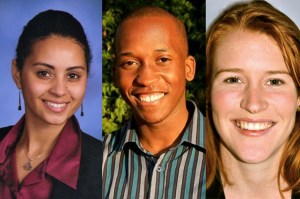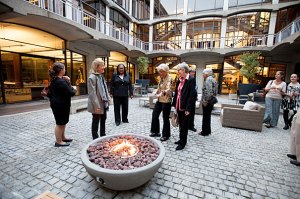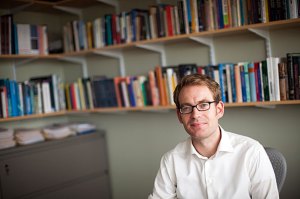Tag: Harvard
-
Health
One cell is all you need
Scientists at Harvard have pioneered a breakthrough technique that can reproduce an individual’s entire genome from a single cell. The development could revolutionize everything from cancer treatment, by allowing doctors to obtain a genetic fingerprint of a person’s cancer early in treatment, to prenatal testing.

-
Health
Sniff mechanics
As described in a Dec. 19 paper in Neuron by Venkatesh Murthy, a professor of molecular and cellular biology, researchers have, for the first time, shed light on how the neural feedback mechanism of the olfactory system works by identifying where the signals go, and which type of neurons receive them.
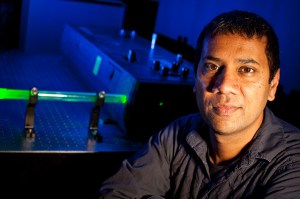
-
Science & Tech
Corn in a changing climate
Harvard researchers have concluded that omitting the adaptive ability of crops from assessments of potential damages from a warming climate could substantially overestimate losses to U.S. maize yields.
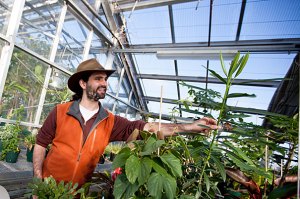
-
Health
Solving a biological mystery
A team of Harvard researchers has shown that insects like crickets possess a variation of a gene — called oskar — that is critical to the production of germ cells in “higher” insects. That discovery suggests that the oskar gene emerged far earlier in insect evolution than researchers previously believed.
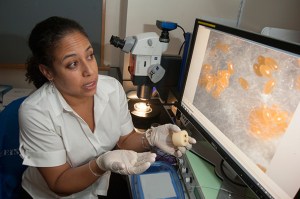
-
Health
The bounty of EDEN
An associate professor at Harvard, Cassandra Extavour also heads up the Evo-Devo-Eco Network (EDEN), a collaborative group of researchers devoted to encouraging the study of nontraditional “model” organisms, ranging from sea anemones and crickets.
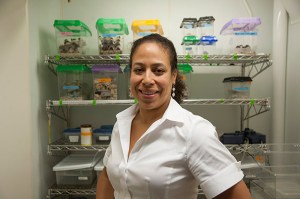
-
Campus & Community
New life for McKinlock
The second House renewal test project, Leverett’s McKinlock Hall, is scheduled to begin in June. The project will result in greater common and recreational space for students, which will help foster community and nurture learning.
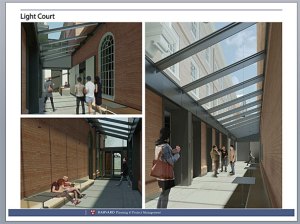
-
Campus & Community
Two named Marshall Scholars
Harvard senior Aditya Balasubramanian and recent graduate Alex Palmer are among 34 students nationwide who were recently awarded Marshall Scholarships.
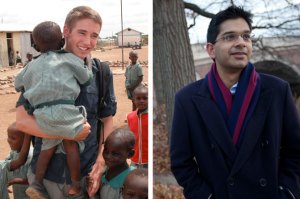
-
Science & Tech
Ancient Iraq revealed
Jason Ur, the John L. Loeb Associate Professor of the Social Sciences, earlier this year launched a five-year archaeological project — the first such Harvard-led endeavor in the war-torn nation since the early 1930s — to scour a 3,200-square-kilometer region around Irbil, the capital of the Kurdish region in northern Iraq, for the signs of…
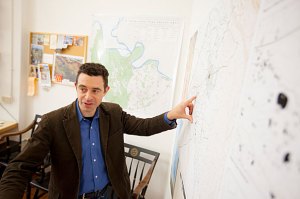
-
Campus & Community
Rhodes selects six Harvard students
Six Harvard undergraduates are among the 32 American men and women chosen as Rhodes Scholars on Sunday. They will begin their studies at the University of Oxford in October 2013.
-
Campus & Community
Fans make a day of it
The Game began long before the teams hit the field. Tailgaters filled the parking lots and later everyone filled the stadium as more than 30,000 people watched Harvard beat Yale, 34-24, in the 129th annual showdown.

-
Campus & Community
The Game: A tradition since 1875
Each year Harvard and Yale vie for bragging rights in a football rivalry dating back to 1875. Harvard vs. Yale is more than just a game. It’s The Game. For many alumni, it’s also a chance to reconnect and reaffirm friendships forged decades ago.
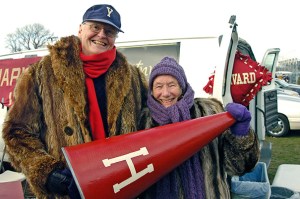
-
Science & Tech
Intelligent Earth
Once its axis tilts, how does the Earth “know” to return to its normal orientation? Work by Harvard researchers provides some answers.
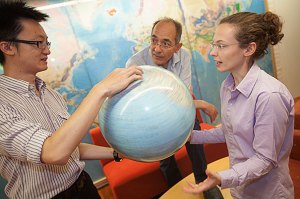
-
Science & Tech
Unearthing a dietary behavior
A new Harvard study says that pica — and particularly geophagy, or the eating of soil or clay — is far more prevalent in Madagascar, one of the few areas of the world where it had gone unreported, than researchers previously thought. The research also suggests that the behavior may be more prevalent worldwide, particularly…

-
Campus & Community
Growing community for students
At the start of the fall semester, the popular Graduate Commons program was expanded to include two additional buildings, more than doubling the number of units included in the program.
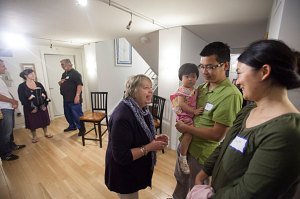
-
Health
Molecular motion in detail
In a critical breakthrough in unraveling how molecular “motors” ferry proteins and nutrients through cells, Harvard scientists have produced high-resolution images that show how the chemical “foot” of dynein — one of the most complex, but least understood such motors — binds to microtubules, the cellular structures it travels on.
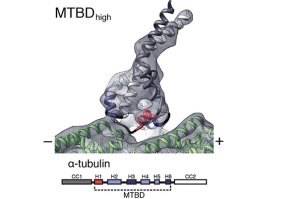
-
Nation & World
HarvardX marks the spot
Harvard has rolled out its first two courses on the new digital education platform edX, with more than 100,000 learners worldwide signing on.
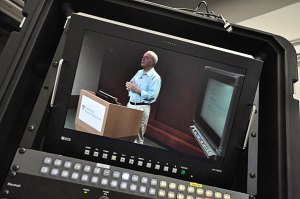
-
Health
Controlling behavior, remotely
Researchers have been able to take control of tiny, transparent worms by manipulating neurons in their brains, using precisely targeted pulses of laser light.

-
Health
Forward thinking on HIV
A research team led by Martin Nowak has developed a technique for modeling the effects of various HIV treatments and for predicting whether the treatments will cause the virus to develop resistance.

-
Health
Bringing the psych lab online
A team of researchers from Harvard and Wellesley College shows that data gathered from online volunteers can be just as good as data collected in the lab.

-
Science & Tech
Soft robots go for color, camouflage
Researchers have developed a system — inspired by nature — that allows soft robots to either camouflage themselves against a background, or to make bold color displays. Such a “dynamic coloration” system could one day have a host of uses, ranging from helping doctors plan complex surgeries to acting as a visual marker to help…
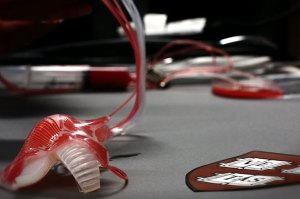
-
Health
Simplifying multidrug therapies
As described in a paper published in the Proceedings of the National Academy of Sciences, a research team found that by studying how drugs interact in pairs, researchers can predict how larger combinations of drugs will interact.
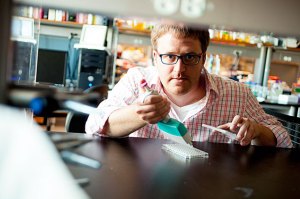
-
Campus & Community
Varsity status for women’s rugby
Harvard will create a varsity women’s rugby team, to begin play in the 2013-14 season.

-
Health
Stars in the making
A paper authored by Harvard’s Eli Visbal with colleagues from the California Institute of Technology and Tel Aviv University suggests that it may be far easier than commonly thought to peer deep into the universe’s history and observe the telltale signs of the formation of the first stars and galaxies.
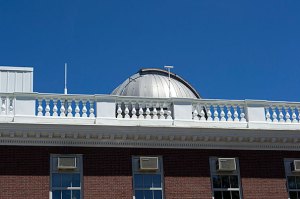
-
Health
Health care savings, naturally
Though questions persist about whether natural remedies are as effective as their pharmacological cousins, one Harvard researcher is trying to understand the economic benefits people receive by relying on such traditional cures.
-
Science & Tech
Concerns about climate change, health
A team of researchers led by James G. Anderson, the Philip S. Weld Professor of Atmospheric Chemistry, warns that a newly discovered connection between climate change and depletion of the ozone layer over the U.S. could allow more damaging ultraviolet (UV) radiation to reach the Earth’s surface, leading to increased incidence of skin cancer.
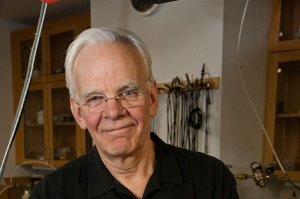
-
Health
A fresh look at mental illness
In a paper published in Neuron, Joshua Buckholtz and co-author Andreas Meyer-Lindenberg identify a biological reason for why many mental disorders share similar symptoms, a situation that makes diagnosis challenging.




